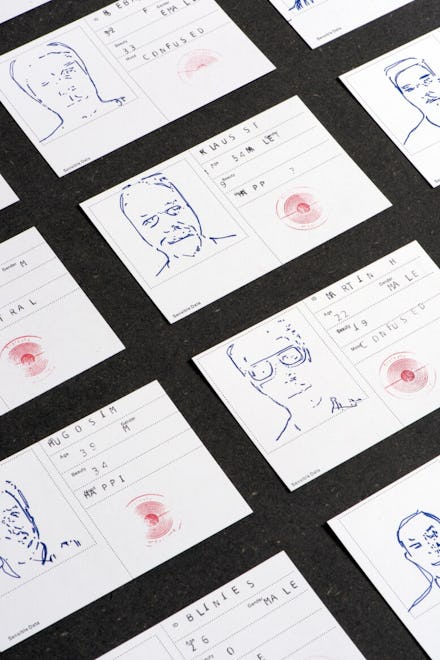This Art Installation Reveals the Sneaky Ways Our Favorite Sites Get Our Personal Info

Giving away our private information is something we do all the time for massive corporations that profit from it. Thanks to a new art installation called "Sensible Data," built by Swiss artist Martin Hertig, it's clear how easy and even fun it is to give up our personal data.
"Sensible Data" uses three small robots in order to take you through an interactive simulation of what we're revealing every time we try a new app or service.
"This project aims to explore the issues of 'confidence' surrounding data collection systems: fun in exchange for personal data," Hertig writes about the project.
The first robot asks you to take a selfie on an iPad and then draws your photo on a passport-like card. Meanwhile, it is using facial-recognition software to guess your age, ethnicity, gender and mood, and it's ranking your beauty by percentile.
The second machine wants to print that information on the card, but first it asks for your email address — which, paired up with your Facebook or Google account (or any place you've given your email address), allows for a conclusive map of your identity. Once you email the robot, it'll print your info on the card.
The last machine asks you to press a "dubious button" for a few seconds and then gives your card a congratulatory "validation" stamp. That button is taking down your fingerprint and storing it alongside the rest of that information.
Lastly, just for kicks, the database will email you a copy of someone else's database entry if their entry matches yours.
This may seem like a silly experiment, but it's frighteningly real. It's becoming more common for sites to use your Facebook, Twitter or Google profile as the mechanism for signing up for a new service; surely you've seen the "Log in with Facebook" prompt when downloading an app for the first time. The system uses one hub of personal data as your bargaining chip for fast entry.
The provider of your information (Facebook, for example) benefits by becoming a more necessary infrastructure to your online life, and the new service benefits by culling your friends, interests and other private information.
When you use Facebook or Google as your passport to log in to any service, they pass along your private data, replicated and ready.
So next time you get this prompt — to let Twitter or Google be the passport that carries your personal information to new providers — consider how fast your data is multiplying and how many copies of that passport are being pushed around, digitally reproduced and distributed.
Watch the video of "Sensible Data" in action: